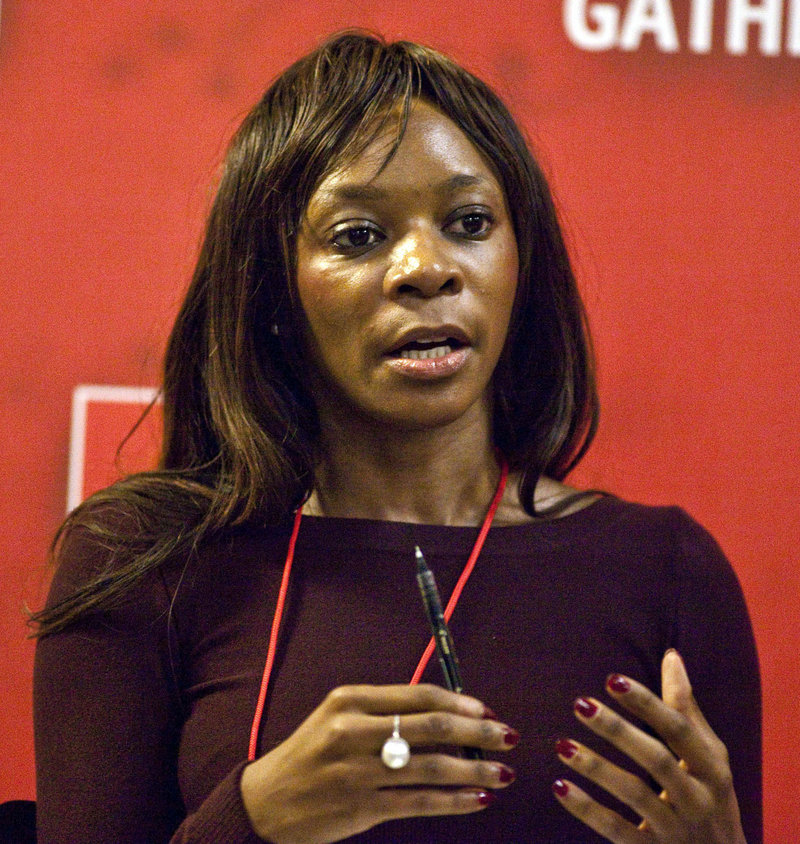HARARE, Zimbabwe – Sandra Tembo walks past a billboard on her way to Mbare vegetable market that gives advice she says friends can’t afford to follow: “Your future is brighter without a sugar daddy.”
“I’m sure they realize the risk,” Tembo, a 20-year-old dressmaking student, said of the friends. “But they say being broke all the time also has its dangers, as you could starve.”
African girls who sell themselves for sex to older men, known as sugar daddies, are fueling an AIDS epidemic in Sub-Saharan Africa, home to two-thirds of all people infected with HIV. Young women in the region have HIV infection rates three times higher than young men: 3.4 percent of women aged 15 to 24 and 1.4 percent for men in the same age group.
Now the World Bank is proposing to pay girls like Tembo’s friends as an incentive to keep them in school and prevent AIDS. Cash may be the “ethical policy instrument” of the 21st century, said Mead Over, a health economist at the Center for Global Development, a research organization in Washington.
“It is obvious, but it never occurred to anybody to give girls cash to help prevent transactional sex,” said Mayra Buvinic, the World Bank’s director of gender and development. “They needed money and, you know, since they got money, they didn’t need to interact with older men.”
The World Bank led a study in Malawi, where about one in eight adults has the incurable illness. About 3,800 schoolgirls and school dropouts ages 13 to 22 were enrolled.
One group got an average of $10 a month and payment for school fees if they regularly attended class. The others got nothing. A year and a half after the program began, infection rates were 60 percent lower among schoolgirls who got cash: 1.2 percent, compared with 3 percent.
Buvinic said the payouts are the first non-biomedical approach to AIDS prevention that she knows of that had a “significant effect.” Biomedical techniques like male circumcision have been shown to reduce the risk of infection.
In the Malawi study, 25 percent of the girls who were sexually active at the start of the program said they had relationships because they “needed his assistance” or “wanted gifts/money.”
Nine out of 10 of the sexually active schoolgirls said they got an average of $6.50 a month from male sexual partners. Malawi’s gross domestic product per person was $339 in 2009, compared with $45,934 in the United States, according to the International Monetary Fund.
The program found a delay in the onset of sexual activity among beneficiaries and a reduction in the number of partners among those who remained sexually active. The frequency of sexual activity was also reduced among beneficiaries, according to the World Bank report. After a year, schoolgirls receiving payments had men as partners who were two years older on average, rather than three years for the control group.
HIV prevalence rises from less than 5 percent among 15 to 19-year-old Malawian and Zimbabwean males to about 20 percent among 30- to 34-year-old Malawian men and about 30 percent among Zimbabwean men in that age group, according to the U.S. Agency for International Development.
The World Bank wants to repeat the test elsewhere in Africa, Buvinic said: “The potential could be huge to reduce HIV rates in teenage girls.”
Berk Ozler, the World Bank economist who worked on the Malawi project, declined to comment for this story because a peer-reviewed journal is assessing the results, spokeswoman Jane Zhang said.
Using money to achieve health and educational goals has won unlikely advocates, including Dambisa Moyo, the Zambian former World Bank and Goldman Sachs economist.
In her book “Dead Aid,” she challenged the African aid lobby by arguing that trade rather than handouts will lift Africans from poverty. This kind of payout, she says, may be different.
“There are a lot of reasons why we would find such a system abhorrent,” Moyo said. “Given where we’ve got today, nothing is off the table.”
Send questions/comments to the editors.



Success. Please wait for the page to reload. If the page does not reload within 5 seconds, please refresh the page.
Enter your email and password to access comments.
Hi, to comment on stories you must . This profile is in addition to your subscription and website login.
Already have a commenting profile? .
Invalid username/password.
Please check your email to confirm and complete your registration.
Only subscribers are eligible to post comments. Please subscribe or login first for digital access. Here’s why.
Use the form below to reset your password. When you've submitted your account email, we will send an email with a reset code.